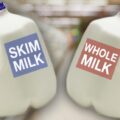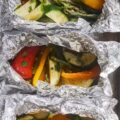No products in the cart.
How Many Calories Are Burned Running a Marathon? Running a marathon—26.2 miles of pure determination—is an incredible feat. The training and the race itself push your body to new limits, adjusting to increased demands for oxygen and energy. As you run, your heart rate, breathing, and circulation all ramp up. But one of the big questions for many marathoners is:
How many calories are burned running a marathon?
Factors Affecting Marathon Calorie Burn
The calories burned running a marathon can vary significantly based on several factors. Let’s break them down:
1. Gender Matters:
Men usually burn more calories than women while running because they typically have less body fat and more muscle. This higher muscle mass requires more energy, which means men often experience more significant weight loss during a marathon. According to the Mayo Clinic, men’s bodies generally burn more calories due to these physiological differences.
2. Age Plays a Role:
As we age, our metabolism tends to slow down. Older runners often burn fewer calories because they have a slower resting metabolic rate. With age, muscle mass decreases, and fat becomes a larger percentage of body weight, which affects how many calories are burned during a marathon. The Mayo Clinic notes that this shift in body composition slows down calorie burning.
3. Body Weight Impacts Calorie Burn:
Your weight significantly affects how many calories you burn while running. For instance, a 125-pound person running at a pace of 5 mph for 30 minutes burns about 240 calories. In contrast, a 185-pound person running at the same speed will burn roughly 336 calories, as highlighted by Harvard Health Publishing. So, heavier runners tend to burn more calories because they have more body mass to move.
4. Basal Metabolic Rate (BMR):
Some people naturally have a faster metabolism, which means they burn more calories even at rest. This factor, known as basal metabolic rate, can significantly influence the calories burned during a marathon. Those with a higher BMR will likely burn more calories and possibly lose more weight during the race. Conditions like hypothyroidism can lower BMR, slowing down calorie burning.
5. Race-Day Environment:
The environment on race day—altitude, sun exposure, wind, humidity, and temperature—can also impact calorie burn. Running in hot, humid conditions or at high altitudes requires your body to work harder, which boosts your basal metabolic rate and increases calorie burn. According to a landmark January 1996 article in the Journal of Sports Sciences, you can mimic the calorie burn of outdoor running by setting your treadmill to a 1 percent incline.
6. Hydration and Fluid Intake:
Marathoner hydration is crucial. Drinking the right amount of fluids during the race helps maintain performance and prevents dehydration. But hydration also affects calorie burn. Consuming sports drinks and electrolyte supplements can add calories, potentially impacting weight loss. Drinking too little can lead to dehydration and cramping, while too much can cause overhydration, according to the University of California, San Francisco.
7. Running Pace and Calories:
Your running pace significantly influences how many calories you burn. A 155-pound runner running at 5 mph burns about 288 calories in 30 minutes. If the same runner increases their pace to 7.5 mph, they burn about 450 calories, according to Harvard. Faster runners tend to burn more calories and might experience more weight loss during a marathon.
Marathon Nutrition and Weight Loss
Nutrition is a key part of marathon preparation and performance. A well-balanced diet rich in complex carbohydrates, lean proteins, and healthy fats fuels your body for the long run. Two weeks before the race, start increasing your intake of complex carbs to store more energy. By the time the marathon is three days away, aim for a diet consisting of 70% carbs, 20% fat, and 10% protein, as suggested by the Cleveland Clinic. A solid breakfast of 800 to 1,200 calories on race day ensures you have enough energy to go the distance.
Closing Thoughts
Running a marathon is not just about the miles you log but also about how you prepare your body with the right nutrition, hydration, and understanding of your unique calorie burn factors. Knowing these details can help you better plan your training and race-day strategy, ultimately leading to a healthier and more successful marathon experience.
- basal metabolic rate and marathon
- calorie burn by body weight in a marathon
- calories burned running a marathon
- factors affecting marathon calorie burn
- how many calories are burned running a marathon
- marathon calorie burn by age
- marathon calorie burn by gender
- marathon calorie burn factors
- marathon nutrition and weight loss
- marathon nutrition tips
- marathon running pace and calories
- marathoner hydration
- race-day environment marathon
- running pace calorie burn
- weight loss during a marathon
1
Shares
Alana Marsh
Alana Marsh is a versatile writer who loves crafting content on just about anything that sparks her interest. As a freelance writer, content creator, SEO specialist, and even a planner, she enjoys weaving words into engaging stories and informative pieces. Whether she's working on a blog post, creating SEO-friendly content, or planning out her next big writing project, Alana brings creativity and enthusiasm to every task. She thrives on the challenge of exploring new topics and sharing her insights with the world.










Leave a Reply